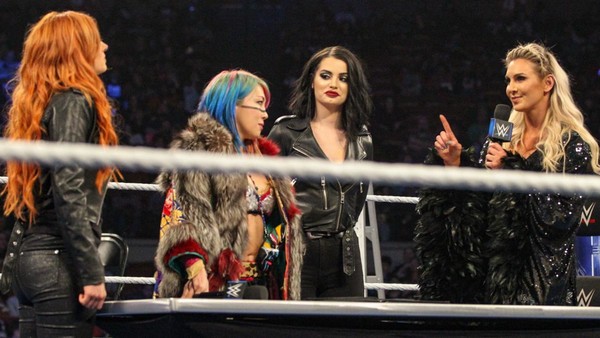Four Years Later: The Rise & Rise Of #GiveDivasAChance & The WWE Women's Evolution

The long road to equality is ongoing and far, far from complete. Off-hand remarks made by Paige - herself a trailblazer that, along with AJ Lee, found herself peaking shortly before the division itself would - during media for her 'Fighting With My Family' biopic had her going to bat for WWE as the company solving the problems of several years ago rather than starting them.
Inadvertently ill-thought-out comments like those and the aforementioned critique from Jim Ross serve as reminders of just how big the wheel is that requires reinvention. Twitter user @bvmshield helpfully collated a host of revelatory anecdotes and asides that ranged from unsavoury to ugly, often as told by the women directly involved. Michelle McCool is a prominent feature throughout, just as she was on WWE television between 2006 and 2011. Her craft - the art of her chosen artform - was ritualistically derided by many at the time and, as evidenced in the tweets, just as unsupported by a management structure with a rank arrogance towards the problem.
We can at least now call it a "problem", even if it's broadly considered past tense. There'll never again be private concern about the women "overshadowing" the men. Or a comedy male performer dressing in drag to win a women's battle royal. Or one of the division's top stars reduced to being a barking sex-slave by a billionaire. The four years since February 2015 have been transformational and transcendent, and would almost certainly be celebrated as such if it didn't shine an humiliating light on everything the company were doing before then. Those decades of decay are increasingly reframed as a dirty secret in the era of the internet-savvy mainstream - an audience that don't have to click more than three screens to witness scenes far cruder than the ones that allegedly kept Chyna out of the Hall Of Fame all those years.
WWE patronisingly gave the Divas a chance and ostentatiously rebadged their entire philosophy on women's wrestling in the process. The four years hence have proven potent creatively but commercial challenges remain ahead. It's down to WWE not to dwell on that but embrace the continuing narrative of progress. The Women's (R)Evolution was a tightly-branded public relations and profiteering strategy, but real revolutions aren't about money or "chance", but change. Changing the habit of a lifetime and not panicking over middling ratings and ticket sales would be a small step. Actively ignoring them would be a giant leap for womankind.
The next four years shouldn't be as hard as the first, but it's tougher staying at "the top" than getting there. Thank goodness the revolutionary roster seem more up for the fight than those that built the barriers in the first place.